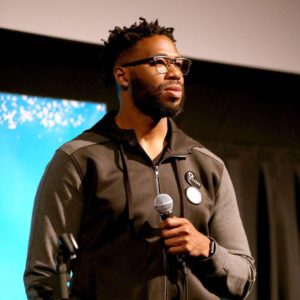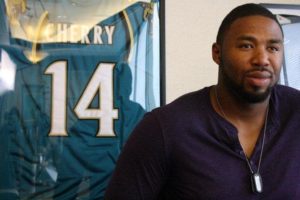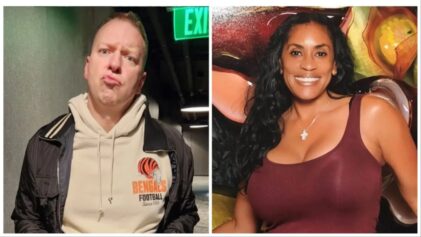 It can be difficult to transition from one career to another, particularly if they’re essentially quite different. However, if one wants to enter the entertainment industry, there can be many paths to take. What makes the industry attractive to many is that there’s not just one formula set in stone to “make it” in showbiz. Since it’s an industry that revolves around creativity, there are many ingenious or strategic methods one can utilize to get the position you want, whether it’s in film, television, theater or music.
It can be difficult to transition from one career to another, particularly if they’re essentially quite different. However, if one wants to enter the entertainment industry, there can be many paths to take. What makes the industry attractive to many is that there’s not just one formula set in stone to “make it” in showbiz. Since it’s an industry that revolves around creativity, there are many ingenious or strategic methods one can utilize to get the position you want, whether it’s in film, television, theater or music.Former NFL player and Chicago native Matthew A. Cherry had his route for getting into filmmaking mapped out well, and it’s paid off for him. His first film was “The Last Fall,” he’s got “9 Rides” coming out in December and is in pre-production on an animated short, “Hair Love.” He recently took the time to speak with us about his films and career.
Atlanta Black Star: You’re a Chicago native. What was it like growing up there?
Matthew A. Cherry: Oh, it was cool. I grew up on the Northwest side. It wasn’t rich or anything, but more middle class. Played a lot of sports growing up.
ABS: That was a good segue to my next question. How did you get into football?
MC: I got into football and other sports as a kid. I think that no matter where you are in Chicago, there’s always that lure of gang life and getting caught up in the wrong crowds. Luckily, I took to baseball, football and other sports at a young age, so I was involved with it since I was around 5 years old. When you’re young, the more you do stuff the more you like to do it.
ABS: How did you get into pro football?
MC: It was just a gradual build-up until I got to college. I had a full scholarship to the University of Akron. I played football. I guess during my years there I ended up being decent enough to where I could sign as a free agent. Then I kind of bounced around for a few years.
ABS: What do you miss most about it?
MC: It’s hard to say. I think everything you do in life helps you get to a certain point, so I don’t necessarily miss anything about it. It was a good experience, though. A good thing to say you once did in your life.
ABS: How did you get into film? How did you make that transition?
MC: It was kind of an organic thing. I majored in radio, TV and broadcasting in college. Didn’t go to a film school or anything. There’s only so much you can do, at least back then, in the Midwest when it came to film. When I got done playing ball I wanted to get into entertainment. After I retired, I heard about this program called Streetlights, which trains people to become PAs [production assistants], primarily under-represented groups, like men and women of color. The cool thing about the program is as they train you they help you get your first couple of jobs, too. That was my first “in” into the industry. Through doing random jobs on set, you take a liking to stuff, and eventually I got into filmmaking.
ABS: Did the PA work help you in your vision as a director?
MC: Yes, because it helps you know how all the pieces of the puzzle fit together. It gives you a better understanding of how it all comes together.
ABS: How would you say directing a music video is different than directing a feature?
MC: Music videos are definitely more visual-based. Story isn’t important, it’s more about a look.
ABS: Which music video would you say taught you the most about directing?
MC: They all do. You learn something new on each video. I try to approach them like short films. I feel like every one was equally a learning opportunity.

ABS: What inspired “The Last Fall”?
MC: It was loosely based on my life. About the difficulties players face when they retire young and have to move back home to figure it all out.
ABS: Was it difficult to put together as your first feature?
MC: Yeah, I think every time you put together a film it’s difficult because you’re asking a bunch of strangers to come together and turn this vision into a reality.
ABS: How long did it take to shoot?
MC: It was an 18-day shoot.
ABS: How long was the whole process, from inception to end?
MC: Probably about a year, from writing it, to finding the money, to getting it done.
ABS: How did you get the money for it?
MC: Various combination. Investors, going through Kickstarter, and putting up a little bit of my own money.
ABS: What’s the most important part of the filmmaking process for you?
MC: I think preparation. Just making sure that everything is trouble shooted before you get on set. I mean, things will happen that you can’t account for, but going in as prepared as possible helps.
ABS: Since film is a collaborative effort, what do you think you contribute most to it?
MC: It ties back to sports. it’s all a team effort, and everybody’s role is important in making sure you have a great project.
ABS: What was the most important lesson you learned that had a positive effect on your films?
MC: I think the most important lesson is doing stuff you want to live with for multiple years of your life. It takes a long time to take a movie from idea to completion. From attending festivals to going on TV, it might be a two- or three-year process. So you want to make sure you do work you’re proud of and that you want to stand behind. I think that’s the biggest thing.
ABS: What films have influenced you?
MC: The two Black indies that really encouraged me to get into filmmaking were “Hav Plenty” by Christopher Scott Cherot and Barry Jenkins‘ first movie, “Medicine for Melancholy.”
ABS: As a filmmaker and writer, is it harder to get started or keep going?
MC: It’s definitely harder to keep going. I think you get halfway into a script and you’re like, “I don’t know if I’m feeling this anymore,” and it’s easy to kind of walk away.
ABS: What inspired “Hair Love,” and what’s the status of it now?
MC: “Hair Love” was inspired by all these viral videos I was seeing of Black fathers interacting with their kids. It was cool to see how much love and attention these videos were getting. I kind of had a similar idea for some years about a Black dad trying to do his daughter’s hair for the first time, in a comedic way. After seeing these videos going viral, it helped affirm the idea. We’re currently just in the pre-production process, making sure that the script is right, starting to model the characters, making sure that everything is good before we start digging into it.
ABS: What’s the status of “9 Rides”?
MC: It’s supposed to be coming out in December. We don’t have an exact date yet, but it will be coming to VOD and iTunes at some point in December.
ABS: How do you think streaming platforms have affected films?
MC: It’s a good and a bad thing. It’s easier for your work to get out there, but you’ll get way less money for your projects because there are so many more of them now. Same thing happened to musicians. You go from being able to sell your album individually to now getting a small piece of the pie through Spotify or Apple Music.
ABS: Where do you see yourself in five years?
MC: Hopefully, still making movies and helping other filmmakers to get their projects going.
ABS: What advice would you give aspiring filmmakers, particularly African-American ones?
MC: I would say to start now. Don’t feel like you have to be a certain age to doing this. If you can do a project when you’re 18, do it. There’s no barrier saying you need to go through a certain process in order to become a filmmaker. Just start now with a smaller thing and work your way up.


